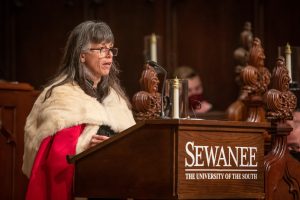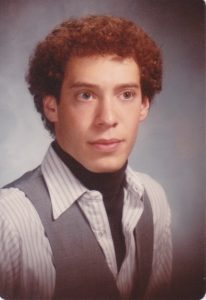On Friday, I grieved.
Today I’m just ticked off.
Every approach to the subject I attempt feels inadequate. Our nation is broken and I despair of seeing it repaired in my lifetime or even that of my children.
When six deeply flawed human beings, driven by their religious beliefs and their disregard for the plights of anyone other than themselves, can set back the cause of human rights with such ease, we are broken. When legislators in two dozen states, the overwhelming majority of them white men, can deny adequate health care to forty-five million women, we are broken. When a U.S. President elected by a minority of the voting public, and a U.S. Senator elected by voters of one state, can twist the Supreme Court nomination process to place three ideologues on the bench in four years, we are broken.
When voters on the left can become so obsessed with a single candidate that they reject the party’s eventual nominee out of pique, thus enabling the election of a man who should NEVER have been President, we are broken. When two naïve, foolish, or perhaps just deeply dishonest “centrist” Senators can be duped by Supreme Court nominees into believing said nominees will “respect precedent,” and that’s enough to put those nominees on the bench, we are broken. When, after a four-year reign of corruption, white-supremacy, and wanton cruelty, ending in a violent insurrection and conspiracy aimed at undermining the very foundations of our Republic, people still need to be convinced that yes, there really are substantive differences between the two parties, we are broken.
When our nation’s political system can be manipulated to enable one-party rule in states that are evenly split between the parties, we are broken. When one party can win the national popular vote for the Presidency in five of six elections, but be declared the loser in three of those elections, we are broken.
When guns kill more than 40,000 Americans a year, we are broken.
When unarmed people of color are murdered in the streets by police again and again and again and again and again and again and again, while armed white suspects are routinely subdued and taken into custody, alive and well, we are broken.
When one’s skin color is a primary determining factor in one’s chances of finding and keeping a job, being able to buy a house, having access to health care, enjoying a comfortable retirement, living to our country’s average life expectancy, we are broken. And when one’s skin color is also a primary determining factor in one’s risk of contracting a disease, of being a victim of crime, of being poor, of being unemployed, of being homeless, of being incarcerated, of being pulled over by police, of being beaten by police, of being killed by police, we are broken.
When things we thought were settled law, like marriage equality and abortion rights and legal protections for suspects and availability of contraception and the freedom to love who and how we wish in the privacy of our homes, are all suddenly at risk again from a judicial system that responds not to legal doctrine, but to the vicissitudes of partisan politics, we are broken.
When elected officials treat educators and librarians and trans children like they’re criminals, and work harder at banning books from our schools and libraries than they do at banning weapons of war from our streets and classrooms, we are broken.
When global climate change is convincingly linked to exploding incidences of catastrophic floods, devastating storms, historic droughts, and hellish, record-setting fires, and still our body politic consistently proves itself incapable of doing anything to save our planet, we are broken.
When economic inequality in our country continues to grow, building on a forty-year trend, with no end in sight, and no true remedial steps under serious consideration, we are broken.
When our problems are so very easy to list, and our progress so very hard to maintain, we are broken.
I resist the urge to leave this post at that. I am weary and angry and despondent. But I am also a father, and someday I expect to be a grandfather. Which means I cannot and will not give up. Barack Obama famously said to an enthusiastic campaign crowd booing a certain 2016 Presidential candidate, “Don’t boo! Vote!” He also famously said, “Elections have consequences.”
Some look at the problems facing our country and say “Burn it all down.” As if that is a solution. As if that isn’t what the other side wants. As if with all their guns and their survivalist shit, the other side isn’t better prepared for such a scenario than we are.
No, the answer isn’t to boo or to burn. It’s to work and to vote and to never forget the anger so many of us feel right now.
Have a good week. Keep fighting.









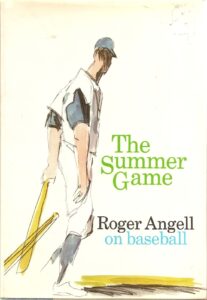 Beginning in 1962, and continuing through most of the next sixty years, Angell wrote about baseball, contributing articles to The New Yorker a couple of times each season, usually once during spring training, and once at the end of the World Series. Some seasons he added a mid-season essay. His articles were later collected in volumes — The Summer Game (1972), Five Seasons (1977), Late Innings (1982), Season Ticket (1988), and Once More Around the Park (1991). I own all of them, and have read them multiple times.
Beginning in 1962, and continuing through most of the next sixty years, Angell wrote about baseball, contributing articles to The New Yorker a couple of times each season, usually once during spring training, and once at the end of the World Series. Some seasons he added a mid-season essay. His articles were later collected in volumes — The Summer Game (1972), Five Seasons (1977), Late Innings (1982), Season Ticket (1988), and Once More Around the Park (1991). I own all of them, and have read them multiple times.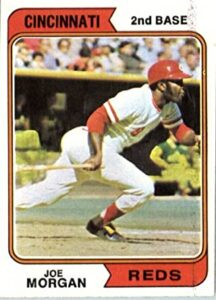 “Aha!!” I was able to reply. “What about Joe Morgan? Two time Most Valuable Player, perennial All-Star, World Series champion. He’s five foot seven!” Besides, I assured them. I didn’t expect or need to be six feet tall. I would be perfectly happy with five foot ten, like my hero, Roy White.
“Aha!!” I was able to reply. “What about Joe Morgan? Two time Most Valuable Player, perennial All-Star, World Series champion. He’s five foot seven!” Besides, I assured them. I didn’t expect or need to be six feet tall. I would be perfectly happy with five foot ten, like my hero, Roy White.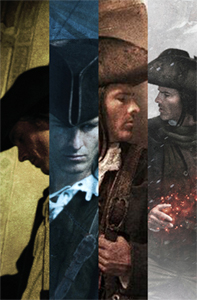 I am not the most talented writer I know. Not by a long shot. I am good. I believe that. My character work is strong. My world building is imaginative. My prose is clean and tight and it flows nicely. I write convincing, effective dialogue and I have a fine eye for detail. My plotting and pacing, which were once just okay, have gotten stronger over the years. I think writing the Thieftaker books — being forced to blend my fictional plots with real historical events — forced me to improve, and that improvement has shown up in the narratives of the Islevale and Radiants books.
I am not the most talented writer I know. Not by a long shot. I am good. I believe that. My character work is strong. My world building is imaginative. My prose is clean and tight and it flows nicely. I write convincing, effective dialogue and I have a fine eye for detail. My plotting and pacing, which were once just okay, have gotten stronger over the years. I think writing the Thieftaker books — being forced to blend my fictional plots with real historical events — forced me to improve, and that improvement has shown up in the narratives of the Islevale and Radiants books. The Outlanders, my second book, may well be the most significant of all the books I’ve published. I knew I had it in me to write one book. But when I finished The Outlanders, and realized it was even better than CofA, I knew I was more than a guy who could write a novel. I was an author. And when Children of Amarid and The Outlanders together were given the Crawford Fantasy Award by the IAFA (International Association for the Fantastic in the Arts), for best fantasy by a new writer, I knew I would have a professional career beyond that first series.
The Outlanders, my second book, may well be the most significant of all the books I’ve published. I knew I had it in me to write one book. But when I finished The Outlanders, and realized it was even better than CofA, I knew I was more than a guy who could write a novel. I was an author. And when Children of Amarid and The Outlanders together were given the Crawford Fantasy Award by the IAFA (International Association for the Fantastic in the Arts), for best fantasy by a new writer, I knew I would have a professional career beyond that first series. I did just that. I started with some short stories that have never since seen the light of day, but which helped me to shape the contours of my world and its history. Then I began work on the novel, and by September had completed the first five chapters of what would eventually be Children of Amarid, my first published novel. I gave the manuscript to a friend of the family who had been a publisher, and he agreed to act as my agent, operating under standard agenting fees. He sent those five chapters and an outline of the rest of the book to various fantasy publishers.
I did just that. I started with some short stories that have never since seen the light of day, but which helped me to shape the contours of my world and its history. Then I began work on the novel, and by September had completed the first five chapters of what would eventually be Children of Amarid, my first published novel. I gave the manuscript to a friend of the family who had been a publisher, and he agreed to act as my agent, operating under standard agenting fees. He sent those five chapters and an outline of the rest of the book to various fantasy publishers.